

This is the compelling conclusion of our fictional apocalypse series about a hacking attack that took out the entire world’s power grid.
The four stories we’ve been exploring include:
If you missed part one through three, make sure to check out the first post. And now, for the last radio broadcast from week 3 of the ongoing global crisis.
*****
United Nations Security Council Emergency Radio Broadcast: March 1st, 2018 @2:30 P.M. New York time.
*****
“Citizens of the world. Greetings once again from Ambassador Alexandre Durand, the acting President of the Security Council of the United Nations.
I wanted to take a moment first to apologize for the continued radio silence over the previous 7 days. The United Nations has been holding emergency sessions with all member states over the past week. The result of those sessions is the purpose of this announcement.
Assessments of the repairs required to all major utilities around the world resulted in the conclusion that the restoration of all power will take at least 12 months, due to the fact that it will take many months to produce new transformers, and the overwhelming demand created by this crisis will make that task even more difficult.
While this news may be troubling – and to many, even frightening – I would like to assure everyone that the situation is quite manageable, and nothing to fear.
From this point forward, all survival and crisis management will be prioritized and managed at a local level – and all future radio broadcasts will also be managed locally to help conserve resources and personnel. All local resources will be focused on and channeled to disaster prevention, healthcare services, and providing clean water and food throughout the coming months.
All citizens are urged to self-sustain themselves and their families responsibly, and to continue to support your neighbors.
Your government will be deploying volunteers to local communities to provide survival training and education. A comfortable survival until the restoration of power is ensured if communities rally together and support one another during this difficult time.
These training programmes will build on peer-to-peer educational programmes developed by the World Health Organization.
Your local governments will be reaching out for volunteers to help set up temporary infrastructure for providing drinking water, sanitation, healthcare, and food production.
While I understand this news may be difficult for many to hear, I am confident that every citizen listening to this broadcast understands their civic duty to maintain law and order, and to contribute to the safety and welfare of their fellow citizens.
Long term survival until power is restored is more than feasible when communities band together in support of one another.
The United Nations Security Council will no longer be broadcasting on this frequency. All future broadcasts will come from your local government, as events develop in your country.
Former United States President and Nobel Peace Prize recipient Jimmy Carter once said, “The pursuit of happiness is a planet whose resources are devoted to the physical and spiritual nourishment of its inhabitants.”
Let us remember this as we work together not only to survive, but to thrive during this time.
We all have faith in our fellow citizens to make this time one of renewed connection with the Earth, and with a greater foundation in our local communities.
Please, let’s work together in this, our new shared global mission.
Stay safe.”
-by Christian Cawley
“Well I’ve never heard so much crap in one speech. Two weeks this has been going on, and all we get is this Jimmy Durante woman eating up the airwaves with her repeated nonsense about cooperation… has she never been out of the city?” Silas Webber took a mouthful of ale from the bottle, before wiping his hairy mouth and continuing. “And I’ll tell you this—”
“They’re trying to teach common sense to a scared and isolated population. Christ only knows how that’ll turn out.” Phileas Marner returned to his pipe, eyeing his pint of black and tan suspiciously. He was beginning to prefer the bottles to the draft he’d been drinking for 40 years.
Things really were desperate.
After a moment’s silence in the candle-lit, oak-lined and slightly smoky pub, a voice spoke up. “They’re talking to the cities. Durand, anyone who follows her from London or Manchester. It’s the cities where civilization is struggling.” Everyone in the pub looked around to the corner, where a man sat with his son. The boy was reading a book, while the man appeared to be doing a crossword.
“Well, Mr. Morley, it’s been nearly a week and that must be the first thing I’ve heard you say. How’s your boy?”
Gerald Niceday was the amusingly-named licensee, and called through the smoke to the village newcomer and his son. They’d been there a few days now, staying in an old VW Camper at first before finding part time work for board and lodge on Eddie McKendrick’s farm.
“Well,” said Kevin to his son, “Tell Gerald how you are.”
The boy looked up from his book (the Kindle had ran out of juice that morning), smiled, and emitted a quick “fine thanks!” before slinking back into the novel, picked up from collection that lined the walls of The Green Man. It had been six days since their arrival here, in what Kevin hoped would be the final stage of their journey; for now, at least. News had been sparse over the past few days, but several things had reached the remote village on the border between Scotland and England.
Most notably, Teesside, their home, was virtually a wasteland, consumed by the semi-intelligent Beast, the chemical N0v4 x18 which had been held in check by an electromagnetically sealed vault. When the power failure came, the vault had eventually opened, and its ability to expand and consume resulted in the low coastal area’s devastation. Only gravity kept it in check, the hillier areas of the North Yorkshire Moors providing a barrier – but how long this might last if the Beast kept growing was anyone’s guess.
And then there was the wider world. The UN had been presenting the events of the past few weeks as a solution that every nation could work to resolve. So why had the nearby airfield had so much activity over the past few days? A colonel in the British Army lived locally, and had quietly told Niceday that trouble was coming… something about “nature abhorring a vacuum.” It seemed likely to everyone who had heard this story – and Niceday wasn’t renowned for his discretion – that at least one foreign power (perhaps even their own government) was attempting to use the situation to gain a strategic advantage somewhere, perhaps the Middle East.
Marner walked over to the Morleys, and sat down. He raised Dominic’s book slightly to see the title… The Guardians. “What’s this about, son?”
“Dystopia.”
“Bundle of laughs your boy, isn’t he?” The old man grinned, and puffed on his pipe. A few moments of thought later, he continued. “I’ve had word from Billy Maxhill. Those two in the chemists have been dropped off in Newcastle.”
Kevin rubbed his head where he’d been clobbered nearly a week earlier after stumbling into a robbery in progress. Just when he thought his time had come, the town’s remaining policeman and a farm hand had burst in, one from the front, the other from the back, and confronted the couple. They’d been planning to empty the chemist’s and sell their wares – instead, they were sent packing to the face the music of the empty promises they’d made back home.
“Cheers. Think they’ll learn their lesson?”
“Doubt it. Just a shame they can’t go up before a judge.”
Formal judiciary had become non-existent. Durand was right: working together was the way forward. But what was really going on out there? The vacuum was deafening. Kevin looked at Dominic. He had the right idea. Suddenly, without the Internet, and without newspapers, there was nothing to read. Everyone’s knowledge of the world ended two weeks ago. Suddenly, life had become very insular, colloquial…
The countryside has its own ways, its own methods of getting along. In some ways, the latest crisis had been a long time coming. Storms, floods, power failures and other infrastructure problems had littered Britain’s remote areas since time immemorial. Only the lack of radio made this something different, something new.
Without electricity, the only way forward was to play a part in whatever society would accept you. Money would be scarce, but personal value high.
Gerald Niceday creaked up the steps from his cellar, tutting. “Microbrewer’s playing up again, ladies and gentlemen.” All around the pub, groans rang out. Sometimes, it really was bad news. “We’ve been lucky this past month, I think, but we’re going to have to lay off the ales for a while, I think.”
“What did the fella from the supplier do last time?” called Sheila Cuthbertson.
“Old Nick himself couldn’t have recreated that bit of wizardry. Laddie had a chemical engineering degree, I think he said.” Niceday shruged, baffled at what that meant and how it might prove genuinely useful.
Across the pub, Kevin Morley smiled. Playing a part was very important. Everyone, even Dominic, would have a role in rebuilding society. Perhaps with less of a focus on the nihilistic “social” pursuits on smartphones and computers, and with more time spent in the real world.
He cleared his throat. “I think I might be able to help you there…”
-by Angela Alcorn
A whole year. Seriously? That’s how long they expect it will take to fix the power infrastructure worldwide. That’s a hell of a long time and we’ve got a full winter at the end of that. I don’t even want to think about it.
Just this past couple of weeks have been a strain — a whole year? Oh, no. I’m going to go insane.
My life has become an endless cycle of cleaning clothes and working out how we’re going to eat. Sure, we’ve got our enormous pantry full of rice, beans and spices, tinned vegetables and other random things that last a long time. We’re not starving — yet. But we don’t have a year’s worth of food!
The markets still sort of work, but until when? Does money keep working if we know things will be back to normal after a year? Do I get to pay for everything with cheques until then? Does Bruce keep getting paid and going to work for the whole next year? Somehow I think he’ll be expected to work and get paid whenever that’s possible. Especially since he works in agriculture and could actually be pretty useful in getting local crops to grow.
My own usual work is a lost cause as no-one can use the Internet. Sure, I can write plenty in my free time, but I really need to be able to exchange goods or services for food and fuel to keep the family going. The best idea I’ve had is to ask the lady at my favourite market stall if I can help work on their family’s farm picking fruit and veg. I’ve done plenty of that over the years and I know it sucks like no other job, but at least I can get paid for my work in food. That’s something, right? It’s just a pity nothing really grows around here until summer when all the plums, apples and kiwis are in season. What to do until then? Fix bikes? And how will people pay me? I’m just going around in circles here.
On the other hand, this digital detox is like an extended holiday in many ways. I’ve finally read quite a few of the books on my shelves, and I reckon I’ll get a number more read before the year is out. If I get really bored I might even re-try some of those classics that didn’t really gel with me the first time I tried them. Or not.
My evenings have become the times when I furiously scan the Serval network for new updates of the outside world. It’s sort of like a reality TV obsession, except I never had one of those. There are about 100 people using it regularly and the updates are getting a little worrying.
One older guy is alone in a rural town and seems to be struggling to get by. I don’t know why his local school isn’t feeding him soups like the one here is with old people. The sad thing is, I don’t really know how to help him. He’s about 20 km away and I can’t afford to use the petrol to go out there. I could ride my bike, but that severely limits what I can actually carry to him. And surely there are people closer to him that could help? Why aren’t they doing anything? What’s going on in that town?
Updates from Toulouse are really scary — the university student population basically don’t have pantries full of food to rely on and not a lot of fresh food is getting into the city. There has been a fair bit of looting going on, but I seriously don’t know why most of them don’t just get on their bikes and ride back to their family homes out in the country while they still have the energy. Isn’t that better? On the other hand, why aren’t their parents coming to get them? I seriously would be trying to round up all my kids if they were in the cities. I’d spend every drop of petrol and get them away from all that crap.
The large semi-rural towns are actually surprisingly ideal for this sort of situation, come to think of it. Right here, we’ve got the numbers to maintain some sort of normality, but we’re also surrounded by farms. As long as we can maintain some sort of economy, life will be sort of normal.
But right here is especially perfect. There’s a reason the cave men lived here, the Romans set up an amphitheater, and it’s basically been inhabited constantly for many centuries — this is a good spot. There’s a river, it’s fertile, it’s a good location for commerce routes, and it’s fairly warm here most of the year. So, in that sense we’ve lucked out.
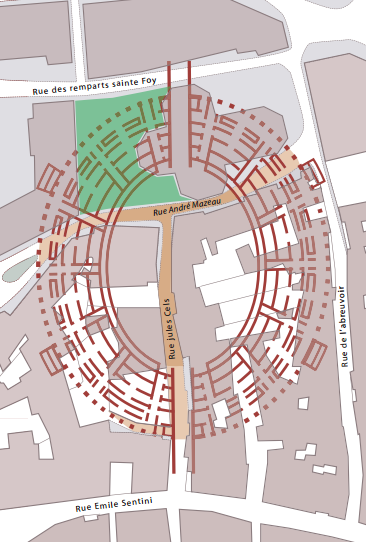
This “one year” timeline is really leaving things uncertain, though. if we knew things would never be the same again we could start living a new life. Maybe we’d move further south and live in Spain where it snows a little less.
But I guess here has its perks. We’ve been friendly with the pizza bar lady for years now, and her kids are the same age as ours. She’s got stacks of flour and bottles of wine at home, along with a few of the more durable toppings, so she’s come up with a new business model for her wood-oven pizza bar: bring your own toppings and something of value to her. If you’re keen to socialise you can see what other people brought in and share the toppings around —which is really cool for the old guys who used to sit there most nights anyway. For us, we’ve got a different deal: if I look after her kids for the night and hand her some toppings she’ll give us a couple of pizzas and a bottle of wine. Nice deal. Yesterday we had some strange pizzas involving basically just chorizo, pineapple, olives and capers. But hey, it’s pizza.
Kind of wish I had more of that French wine stashed away myself though — and I really want a pizza tonight.
-by Brad Jones
My name is Malcolm Milton. I’m struggling to piece together what has happened to my father, Mort, and my son, Mark.
As soon as word began to spread among intelligence agencies that a major terrorist attack was about to take place, I was called in to help gauge the problem and start working on a solution. Don’t let this convince you that I’m some kind of VIP — I was just one of an enormous amount of skilled workers across different fields that were asked to help with a truly monumental issue.
For obvious reasons, I’m not going to go into the work that I’ve been doing. Suffice it to say that it was related to electrical engineering.
I was sent home two days ago. Yesterday, I arrived at my father’s house to find it empty.
I had previously left my son in his care, as he’s the only family that me and my son have in the country. Honestly, I didn’t realize that I was putting either of them in such peril. I wish that I had known what I was getting myself into.
If you’re reading this, you’re operating under the very same impulses that I did. My son’s diary lay open on the table, with a note from my father on the open page. He explained that my son had made an attempt to gather supplies from a local shop and hadn’t returned. He followed to try and located Mark, but it seems that he never made it back to the house either.
I’m under no false pretences here. I’m fully aware that this situation doesn’t look like it’s leading toward a happy ending.
Having said that, I don’t think there’s any reason to assume that both my father and my son are dead. For the moment, they’re missing — but I bet a lot of people are missing at the moment.
I’ve seen the papers that explain why it’s going to take at least a year for things to get back to normal. I won’t claim to understand all the factors in play, but everything that’s in my wheelhouse checks out. The world is changing — it’s already changed. If our society has to live for longer than a year without electricity, it’s not just going to switch right back to normal once we’re up and running again.
While I was making my way back home, I travelled through a couple of different settlements that are already starting to take shape. People are starting to carve out a different way of life. There’s something honourable about the sense of community that’s sprouting in the absence of power. However, I don’t think it’s an entirely positive shift.
One settlement in particular had already become very insular. It’s difficult to remember that this situation has only been active for a matter of days. I’d never met the people there beforehand, but I would hope that they didn’t behave that way before we were plunged into this mess.
All this being said, the fact that I saw those settlements is doing a great deal to keep my spirits up. If Mark found a group of people living together, I can see why he might want to join them. Hopefully, my father would have found that same group and the pair are waiting for me to follow the same trail of breadcrumbs.
As you can no doubt tell, I’m trying to remain optimistic.
The truth is that I’ve seen a lot of panicked people over the last few days. Human beings often don’t respond well to being removed from their comfort zone — particularly without fair warning — and that’s exactly what’s happened.
I’ve been reading over the two diary entries that Mark left here before he went missing. It’s soothing, but only for small periods of time.
The important thing is for me to get out there and start trying to find both of them. I don’t have much to go on, and I can’t count on any support from the local authorities. They are snowed under, and they’re taking full advantage of the fact that no one can reach them by telephone.
I’m keeping a brave face on this, because I can’t go out and find my son and my father if I don’t.
Things out there are very bad.
It doesn’t seem so bad because most people are sequestered one place or another. No one can communicate the way we could a couple of weeks back, so it’s difficult to share stories. The journey back home showed me a few things about how things are progressing that I wish I hadn’t seen.
There was a supermarket I passed by — and this was a proper supermarket; not the tiny little “supermarket” Mark would have been heading for — and it looked like a warzone. All the windows were smashed. There had clearly been fires that had burned themselves out. I could see bodies, but I wasn’t going to go get a closer look.
The point is that things have gotten very scary in certain parts of the country. I haven’t seen anything like that up here. I hope I don’t have to see anything like that up here.
After I finish writing this, I’m going to leave the house, and I’m not going to return until I’ve found my son and my dad. That’s all I have left to go on, at this point.
This note is for Mark or Mort, should either of you return here after I’ve gone. I wouldn’t say this unless I really meant it, but there’s a good chance that things are about to get very bad if they haven’t already. If you’re reading this, batten down the hatches and don’t take any risks for as long as it’s possible. The world ended when the power cut out, and it’s not yet clear whether it’ll ever start up again.
If that sounds bleak, it’s because this is a bleak time to be alive.
It’ll be a lot less bleak for me, if you’re both still alive with me.
-by Philip Bates
A 3D-printed weapon is surprisingly cumbersome, but it was necessary. The sensors pick up anything metal, so it had to be made from plastic. A partwork resulted in me making my own 3D printer at home: Ella thought it was a simple hobby. Her hobby was Peter, so my hobby was to end him.
It didn’t quite work out that way.
Holly figured it out when she saw the photo lying behind the desk, its nail mysteriously having vanished. That’s all I needed: one small piece of metal to act as a firing pin. An episode of Elementary gave me the idea of using a nail.
But in the event, I didn’t get to use that gun. Graeme did when he went ballistic, firing at the windows, but the circumstances changed.
A week ago, I was in the disused station where Jess Stephens disappeared. She was undercover there when the power went off and we never heard from her again. There was nothing there, apart from a radio. Whoever had been there had obviously known what was coming and was waiting for word from above. No hints of terrorist activity, but equally, no body either. I guess Jess is alive somewhere. Hiding.
It was just me and Peter and I tried to shoot him. With a normal gun. I didn’t need subterfuge. All I needed was the icing on the cake. My story would be that once down there, he tried to kill me. I then shot him in self-defence. All I had to do was kill him, take his gun, and shoot myself in the shoulder or arm or somewhere non-fatal. That’d look convincing. It was, after all, too dark down there to see properly. He could’ve missed.
How ironic. I missed. What an idiot – and after gloating too.
I told him about the fake testimonials from agents in the field. I told him I’d planted the 3D printer (wiped clean of prints) plus the instructions in his apartment. And about the text messages, supposedly code between terror cells, I’d bribed Adam from Section D into creating. Adam was sold on the idea that Peter had been the traitor, so he framed him altruistically, if you can believe that.
And then Peter got away because I missed. Stupid.
That still left me with a plan: I fired into my shoulder using his gun, which he’d dropped in the brief struggle. I’ve only been shot once before – in the leg – so it was a pain that I knew I could cope with, but was still excruciating. It tears through your skin, and burns and burrows away under you. It was necessary.
I managed to get back to Thames House and relayed the news that Peter had shot me and escaped. A warning went out to everyone working for the Secret Services, and Section B was actively put on the search for him.
But that’s the thing about this new world order. Everyone has been looking for a week, but people can vanish more thoroughly than ever before.
“What’s the point of us now?” That’s what I heard Eva say as she left over a week ago. The answer became increasingly clear as the week went on: the same as ever.
Regnum Defende. Defend the Realm. Do the best as we can.
I’d fashioned a situation whereby everyone thought we had to defend the realm from ourselves, just as much as from the terrorists.
So we searched for Peter. We should’ve been searching for Jess too: we couldn’t just leave her out there, cold, but Peter took precedence. Why? I’d like to say it wasn’t all my doing. The team felt he was representative of the hackers: if we took him down, we chipped away at the people who had crippled the world. We could justify our place.
That’s a theme. After terror attacks, people question us. What use are we? Why do privacies have to be violated when we can’t even stop a simple bomb or a simple massacre or a simple hacking?
We had to be seen to do something, internally at least. Much of the pressure comes from the Director-General, a man who runs one of the most important organisations in British history but you’d be forgiven for thinking he’s only rolled out on PR occasions.
In the search for Peter, Holly (upgraded to Chief of Section and Senior Case Officer) was telling the DG that we were still needed.
But it all seemed so impossible. We had informants and drops and safe-houses, but it’s only been – what? – a fortnight since the power went out, and we’re yet to find our place again. We can’t scour Internet histories, or phone messages.
Terrorism will become even more secular. Communication is sparse. Attacks can’t be as organised as before. It’s a tough time to be a terrorist, but also to work for the Secret Services. Not just MI5, but MI6 and GCHQ and even the NSA too. Peter became representative of our flustering in the dark. Once someone was in the wind, that was it. You had to wait until they made themselves known again.
And the one thing I really should’ve learnt was to look on my own sins. The biggest enemy is the one within. I went home, and there was Peter. Ella had let him in and then left him to get on with what he needed to do. No doubt he’d explained the whole situation to her.
He’s found the 3D-printed gun. Why did he wait a week?
“I was getting evidence,” he explains to me. “Evidence to clear my name, to prove you were the one who helped the hackers.”
“But it wasn’t me.”
“I know that now. That’s why it’s come to this instead,” he says, and nods to the gun in his hand. “But I still need to clear my name.”
And so this is it. My confession. Sorry my hand-writing’s so bad, but that’s the effect a gun pointed at your temple can have.
“I don’t suppose anyone will blame me,” Peter says. “You’ll be swept under the rug when I’m welcomed back. When looking for evidence to convict you, I stumbled on the real culprit. It was no coincidence that Jess disappeared at such a terrible time. And do you know how hard it is searching for someone when you lack any help from MI5’s tech wizards?”
Heh. No, really. He just said that.
The gun’s at my head, and the announcement comes. The final announcement from Ambassador Alexandre Durand: “We all have faith in our fellow citizens to make this time one of renewed connection with the Earth, and with a greater foundation in our local communities. Please, let’s work together in this, our new shared global mission. Stay safe.”
And I think this is the end.
This has been the final installment of this fictional “tech apocalypse” series. On behalf of the four authors above, editor Tina Sieber and myself, I hope you’ve enjoyed these serially published fictional story!
It does lead one to ask…if right now, the power went out everywhere, not to return for a year or more – what would the world become? What would you do?
Image Credits:Apocalyptic landscape by nouskrabs via Shutterstock
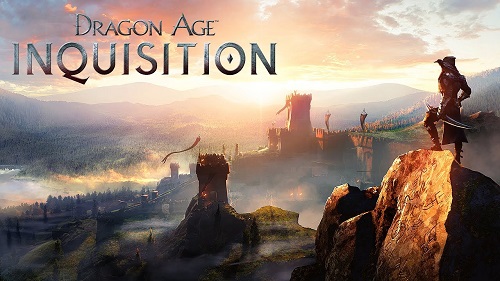
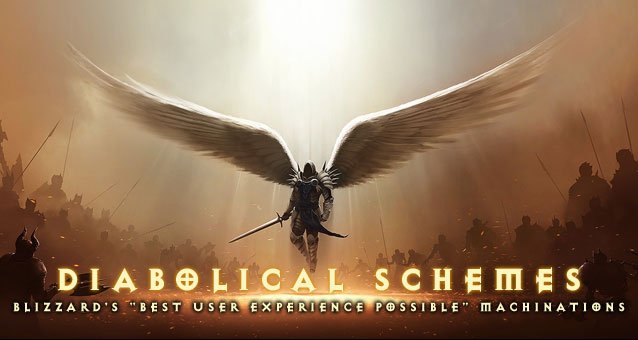

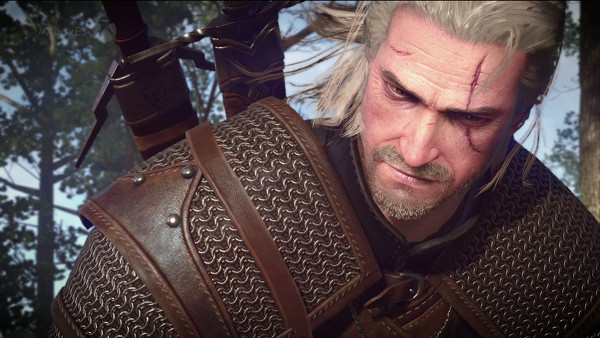
 Hyper Light Drifter Wiki – Everything you need to know about the game .
Hyper Light Drifter Wiki – Everything you need to know about the game .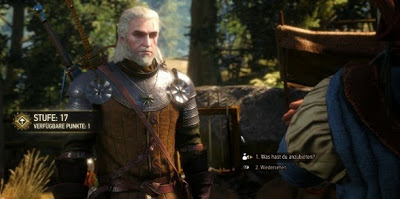 The Witcher 3: Wild Hunt strategies
The Witcher 3: Wild Hunt strategies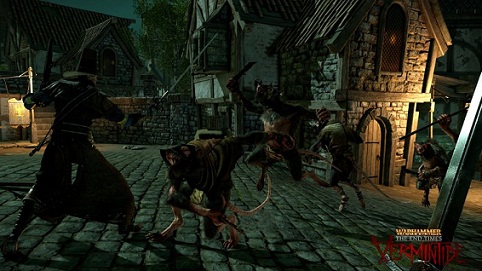 Warhammer End Times Vermintide crafting / upgrade guide
Warhammer End Times Vermintide crafting / upgrade guide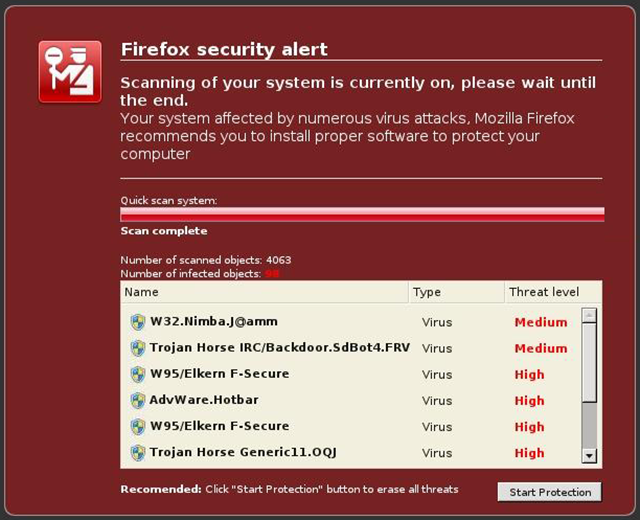 How to Spot and Avoid Fake Virus & Malware Warnings
How to Spot and Avoid Fake Virus & Malware Warnings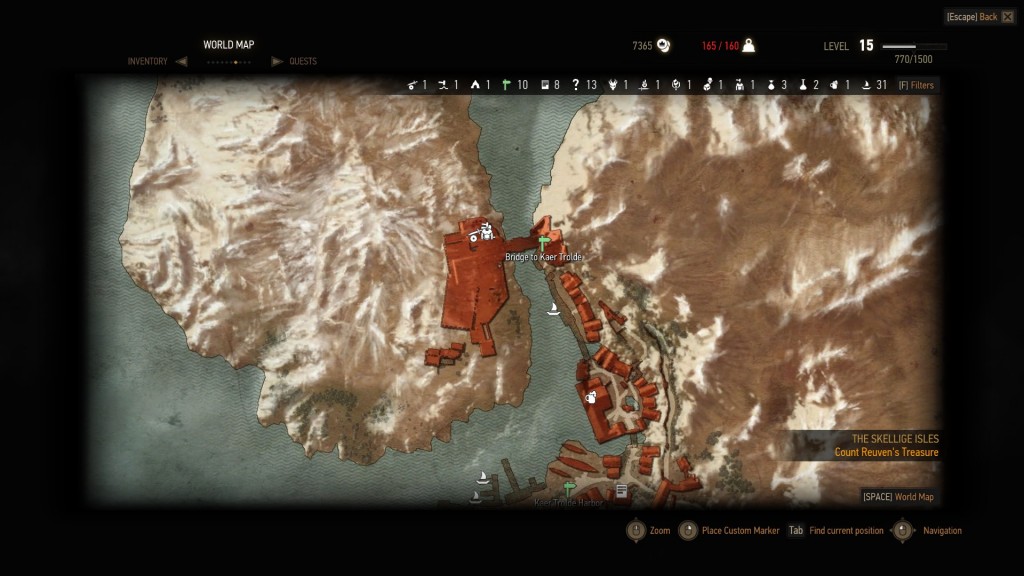 The Witcher 3 Guide: How To Get Zerrikanian Saddlebags, Location, Upgrades And Stats
The Witcher 3 Guide: How To Get Zerrikanian Saddlebags, Location, Upgrades And Stats